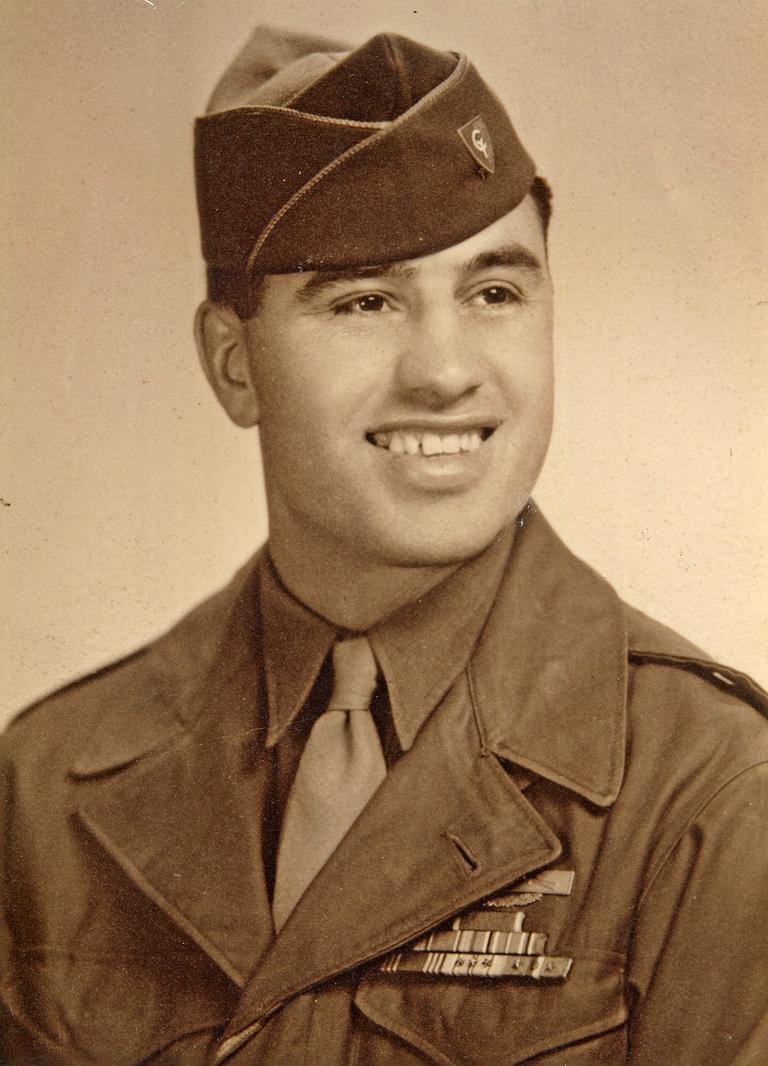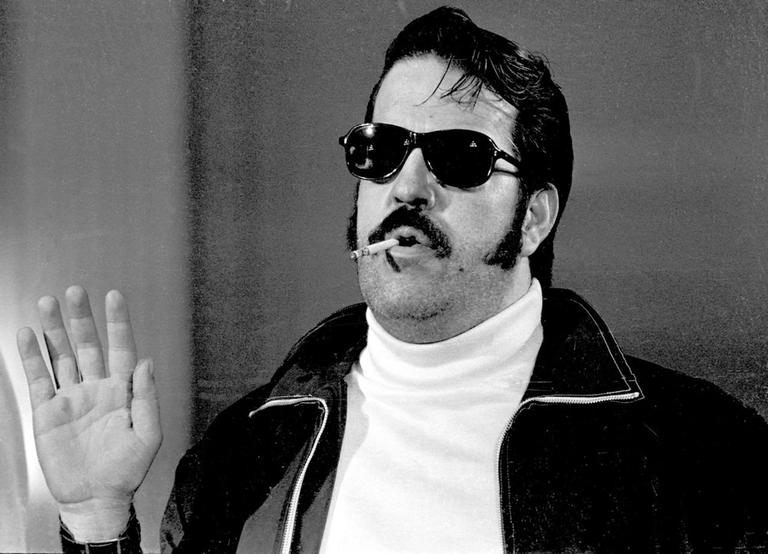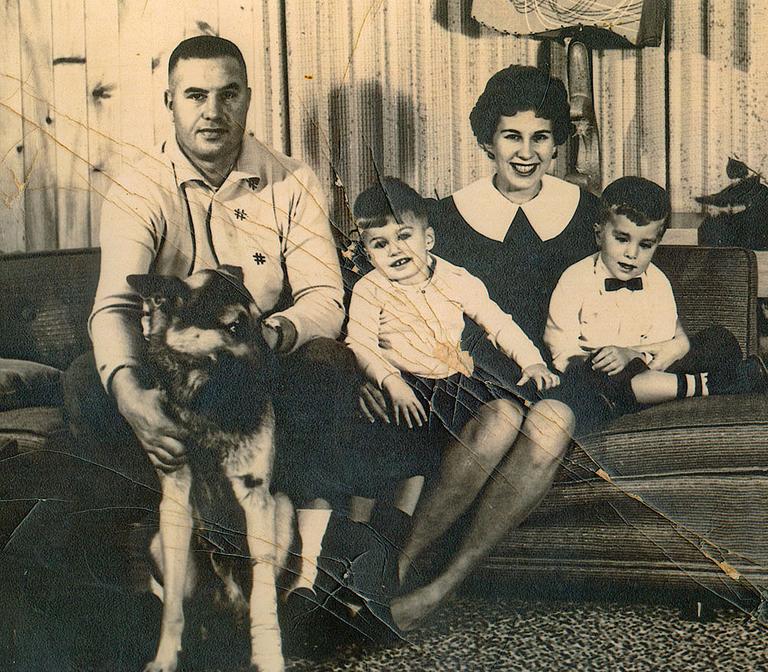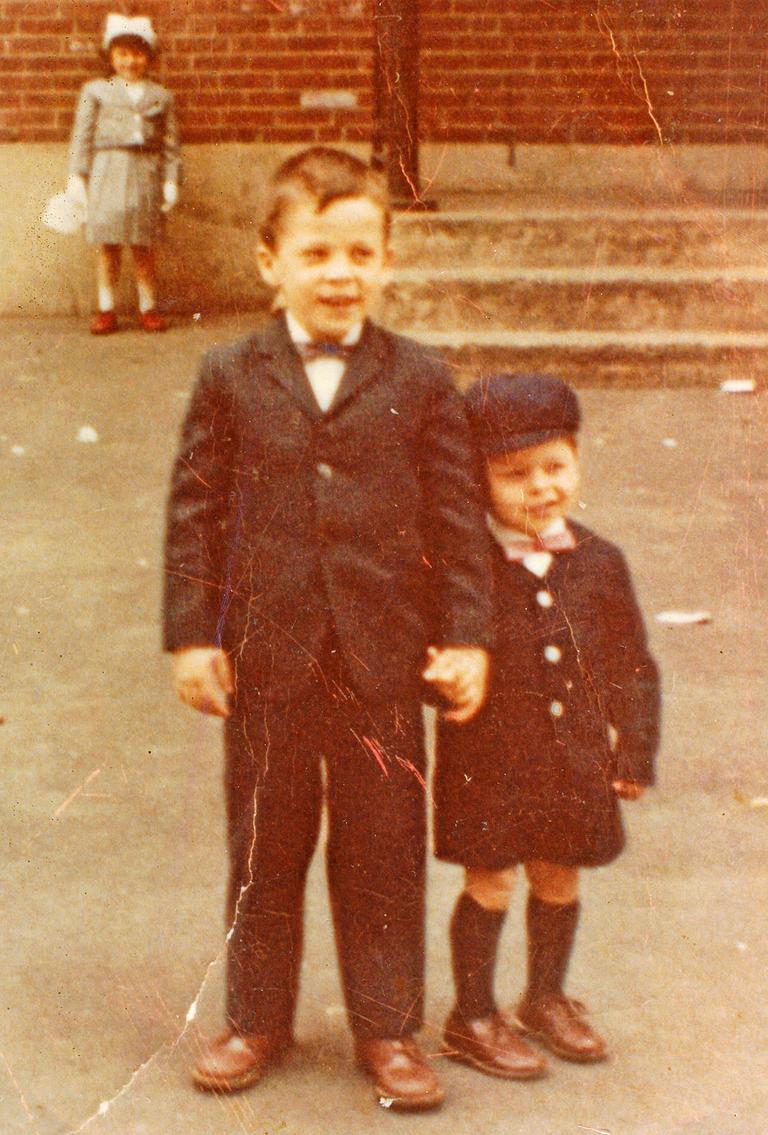Advertisement
The Murder Case That Never Ends, The Crime That Keeps On Giving
Louis Greco never owned a boat, but he could have bought the whole Cottage Park Yacht Club in Winthrop last week, where his exoneration as a convicted killer reached high and low tide.
The $101.7 million had finally showed up from the U.S. Treasury. That’s how much a federal judge had ordered the government to pay out because it had long ago framed “four innocent men:” Peter Limone, Joseph Salvati, Henry Tameleo and "Louie" Greco. The judge, Nancy Gertner, made the ruling in 2007, but the government had held out for three years until deciding in April to give up the fight and hand over the money. An extraordinary award, perhaps the largest of its kind against the federal government.

“You’ve exonerated Louie,” Greco’s crusading, once young, now not-so-young attorney, John Cavicchi, told applauding fellow attorneys at a small celebration at the yacht club. He’d championed Greco’s cause since 1977. And for Cavicchi it really was a cause; he'd worked tirelessly for meager pay. Charitably, he spared the audience the saga of what seems like ancient history.
Consider this: Lyndon Johnson was still president back when Greco and his co-defendants were convicted in the 1965 murder of a small-time hoodlum named Teddy Deegan in a Chelsea alley. The prosecution charged Greco with being the shooter and the three others as accessories to conspiracy. Greco was sentenced to death, as were Limone and Tameleo.
It would take a new century before the convictions would be overturned, their lawsuits would go to trial, and Judge Gertner would declare that the FBI had deliberately withheld exculpatory evidence at the 1968 trial: namely, that its star witness, a contract killer for the Mob, was telling considerably less than the whole truth.
Finally, even if the Department of Justice still wasn’t admitting culpability or offering apologies, the money had come through. And because the Department of Justice had stalled and appealed along the way, Greco’s award had come through with three years of interest added. It came to $28,755,755.
But unlike the old days, when he hung out on Broadway and Revere Streets in Revere, Greco wasn’t around to collect. Though he’d been spared the electric chair when the state abolished the death penalty, Greco died in prison nonetheless — before he could be exonerated. So his ex-wife, Roberta Werner, got the money instead. She was at the yacht club with her second husband.
It was a pleasant, if odd event. Except for Cavicchi, none of the attorneys present had ever met Greco; they’d all come aboard for the lawsuit and had been handsomely rewarded with 25 percent of the $26 million. The most uncomfortable people in the room — and the most amused, as well — were Tony Pisa, who was on death row with Greco (for a different matter) and James Southwood, an old reporter who, try as he might, has never been able to get away from the case.
“James, Louis Greco wasn’t in the alley.”
Joseph Barboza
“Louis Greco never wanted to be vindicated as an innocent man,” Southwood recalled. “He just wanted to get out of jail.”
Of all the claims to having been framed, no one’s was better than Greco’s. He submitted himself to eight different lie detector tests administered by outside experts. Greco passed all eight of them. If the other defendants ever took and passed a polygraph, they never said so.
To the main question in each test, Greco answered that he wasn’t in that Chelsea alley in 1965 and didn’t shoot Deegan. He said he wasn’t even in Massachusetts at the time of the killing; his wife testified at the trial that they were living in Florida.
How Southwood, the old reporter for what was once known as The Herald Traveler, got to know Greco and the whole Deegan murder case is so implausible by today’s standards of government/media relations that it could only happen in another era. At the start of the 1970s, Southwood was actually solicited by the government — FBI agents and a federal prosecutor, Edward Harrington, who's now a federal judge — to write a book with the FBI’s star witness, Joe “The Animal” Barboza.
Barboza was the first mobster-turned-government witness in the new national war on organized crime launched right here in Boston. His testimony sent Greco and his co-defendants to prison. He’d also sent Mafia boss Raymond Patriarca to prison and he’d almost sent Mob underboss Gennaro Angiulo, as well.

As outlandish as it seems today, the feds opened the doors to Southwood and brought him to meet Barboza at Fort Knox, where they were protecting both the endangered witness and the nation’s gold reserves.
Barboza turned out to be DeNiro before DeNiro, a garrulous, philosophizing, sometimes charming, electrically wired bomb in a box. He wore a pork pie hat, a lantern jaw and a tattoo that read: “Born to Lose.” His favorite song, says Southwood, was Sinatra’s “My Way,” which for Barboza meant beating, stabbing, shooting and garroting.
Playing Boswell to Barboza’s unlikely Dr. Johnson, Southwood found out soon enough that he had a shadow for life. Though Barboza was supposed to be in witness protection, or at least out of the state, he’d fly back to Massachusetts on his own and show up unannounced at Southwood’s Sandwich home. He made an unusual and difficult house guest.
It was during one of those trips in 1970, Southwood said, when he was driving the FBI’s star witness back to the Providence Airport along with Barboza’s carry-on luggage — a couple of handguns in a paper bag — that Barboza uttered seven words that changed Southwood’s life and his career.
“James, Louis Greco wasn’t in the alley.”
“I knew exactly what he was trying to tell me,” Southwood said. Barboza had lied. Now he was admitting Greco wasn’t in the alley at all when Deegan was murdered.
Under the glow of new money and the now-fuller sense of exoneration for Greco, it was hard, from the deck of the yacht club, to imagine the shipwreck that was Greco’s stint in prison.
Southwood said he knew what he had to do. He went to Barboza's handlers, FBI agents Paul Rico and Dennis Condon, and told them their witness had recanted and the book deal was off. He told the same thing to the federal prosecutor Ted Harrington. And he told the Suffolk County District Attorney Garrett Byrne, whose office had prosecuted Greco and his co-defendants, that the verdict didn't look too good now.
But none of them wanted to hear it, Southwood says. Suddenly he was persona non grata.
And that was 40 years ago. So when Southwood got a plaque from Cavicchi that read “Louie Greco Dream Team, 1970-2010,” he had other thoughts.
“It’s more like the nightmare team,” Cavicchi cracked. “We still don’t know what happened that night.” “You’re right!” Southwood said.
Under the glow of new money and the now-fuller sense of exoneration for Greco (for whom Cavicchi had already sought a posthumous exoneration from the state of Massachusetts), it was hard, from the deck of the yacht club, to imagine the shipwreck that was Greco’s stint in prison.
“Everybody in prison knew that he was innocent,” Pisa said. “The word was out.”
Greco was a proud man, quiet, and not prone to complaining about what life had handed him. He joined the Army before World War II, became a professional prizefighter, and sent off to combat in the South Pacific. He won two Bronze Stars, a Purple Heart and came back disabled for life with a shattered ankle and no future in the ring.

With a sixth grade education, Louie wasn’t exactly eligible for the GI Bill. So he did what a lot of broken-down fighters did in that era, Southwood said. He sold his muscle as an enforcer and worked as a repo man: when Greco told people to turn over the keys to their cars, you better believe they did it.
"He wasn't an altar boy. (He) did what gangsters do. But when it came to this city — Revere — he would do anything for people here," one of his best friends, Vincent Maria, said when they got a memorial sign put up on the street corner where Greco was born.
"There wasn't a nicer guy around that Louis," Maria said, who also attended the event at the yacht club.
"Unless you owed him money," Southwood said, true to the craft of honest reporting.
When Greco went away to prison, his two boys, Edward and Louis Jr., were 11 and 13 years old. His wife, Roberta, was in her early 30s, 20 years younger than her husband.
At the civil trial and under questioning from his attorneys in order to establish damages, Edward testified that after his father went to jail, his mother drank heavily and neglected to feed him and his brother or wash their clothes; they had to forage through other kids’ lunches. Edward said his mother often beat him. Within a year or so of Greco's imprisonment, she stopped visiting her husband in prison. She brought another man in the house with her children. Then one day in 1970, she abandoned them without notice and took off for Las Vegas with the savings bonds Edward had gotten for his birthdays and his paper route money, as well.
“I begged the judge not to give him an award in cash. I just knew if he got his hands on cash, he was going to OD."
Roberta Werner
“Louie was outraged that a mother could do that to her own children,” his friend Pisa said.
Roberta would later say that she was “terribly ashamed” but thought at the time the children would be better off somewhere else.
For his part, Louis Jr. never got far. After his father died in prison in 1995, he drank a can of Drano and died. His brother, Edward, often without a home and unable to go to college as he once planned, became a junkie. By the time he was 20, he lived in a state prison.
Edward went to New Orleans after his release, fought a battle against heroin and cocaine, pulled things together, and then fell apart again after his father died, he told the court in 2006. He had a bad heart, lost a lung and his spleen, was living in a nursing home, and had recently been living at the Salvation Army.
Despite the fact that she had divorced Greco in 1970, Roberta had been his wife at the time of his conviction, and when Louis Jr. — who was the beneficiary of Greco’s will — died without a will himself, Roberta became, in effect, the estate of Louie Greco. So she got the millions while Edward got $250,000.
Roberta promised to share her money and was setting up a trust fund for Edward, but she wanted to make sure he couldn’t get his hands on lots of cash.

"I begged the judge not to give him an award in cash," Roberta said last week. “I just knew if he got his hands on cash, he was going to OD. That’s why I was setting up a trust fund for him.” She said she was going to give a quarter of the $28 million to her son.
But it didn’t work out that way. When the money came through from the Treasury a couple weeks ago, a quarter of a million dollars — plus interest and minus the lawyer’s contingency fee — was wired to Edward Greco. Within a couple days, he was dead.
“Just what I predicted,” said his mother, who learned of her son’s death from one of the Louie Greco Dream Team lawyers while she was at the yacht club. "He died of an overdose."
“Get me out of here,” Southwood muttered.
"We don't know how he died," said one of Edward's attorneys, Howard Friedman. Friedman said the toxicology and forensic reports will come back in three weeks.
Edward's mother said she didn't want the body coming back to Boston and she didn't want any part of Revere. So she left town and didn't attend her son's funeral on Wednesday.
It was a tightly controlled event, with no notice in the papers or even on the funeral home website. In attendance were three lawyers, two of them from Chicago, who made the arrangements, and three of Edward's relatives, as well as a friend of Greco who attended despite signals he and Louie's other friends weren't welcome.
Edward was described as looking just like his father, who was arguably the most deserving of the defendants who'd been exonerated. He had been the glue that held his family together, Edward had testified at the civil trial in 2006.
“What happened to Louie destroyed those kids,” Southwood said as we drove off from the yacht club.
It’s a case he’s never been able to shake, a case that never seems to end, a crime that keeps on giving.
Update, July 3: According to a law enforcement source in New Orleans, who requested anonymity because of the confidential nature of the investigation, preliminary indications from the scene where Edward Greco was found indicated he died of a drug overdose. The medical examiner's office is awaiting the results of toxicological tests.
This program aired on June 30, 2010. The audio for this program is not available.
